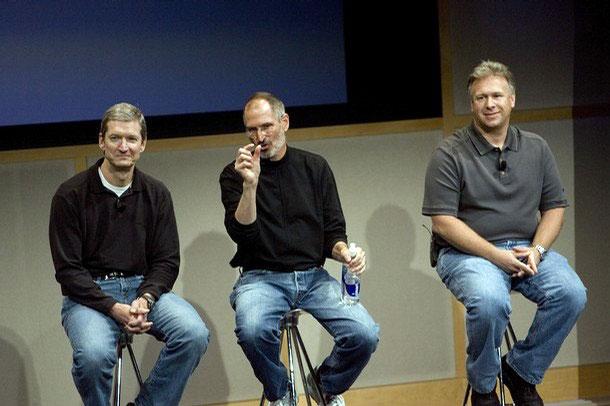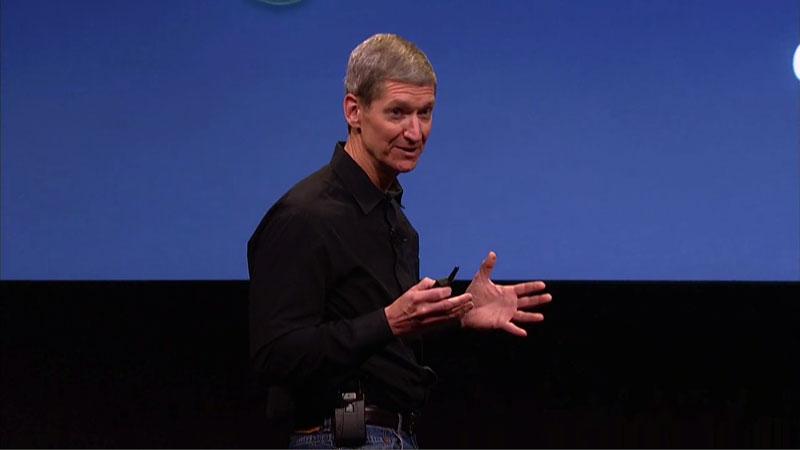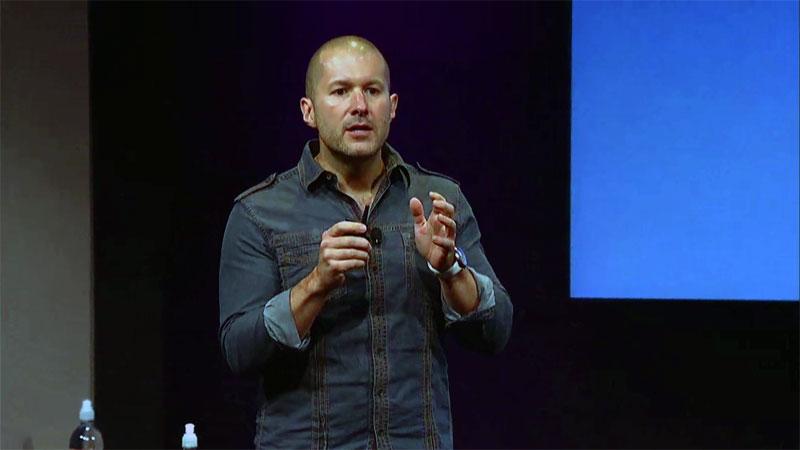Jobs praised Cook's "rare combination of experience" when he was hired in 1998. Before joining Apple, Cook was vice president for corporate materials at Compaq, heaving spent twelve earlier years as IBM's director of North American Fulfillment. He was promoted to Apple COO in October 2005 and has served on Nike's board of directors since late 2005. Cook earned his M.B.A. from Duke University and his bachelor's of science in industrial engineering from Auburn.
"We believe Steve Jobs has put a culture in place to carry on his legacy," said Barclays analyst Ben Reitzes.
Cook was a virtual unknown when he was plucked from Compaq. According to a 2006 Wall Street Journal story, Cook is "routinely solicited" for CEO jobs on account of his success at Apple. As questions swirl about Apple's leadership plan for when Steve Jobs does someday permanently step down, Cook's decision to stay at Apple might ultimately see him become Jobs' successor.
In a research note, Reitzes complimented Cook, 48, on some "key Apple attributes" that usually aren't associated with Jobs, 53.
"We credit Cook with spear-heading Apple's successful efforts to streamline its supply chain after the tech bubble," he said. "Tim's focus on low inventory has contributed to Apple's industry-leading cash conversion cycle as well."
Managing Money
A BusinessWeek report provided specifics:
The fiscal year before he arrived [in 1998], Apple had reported a $1 billion loss on sales of $7 billion, a drop of more than $2.8 billion from the year earlier. One of the company's biggest problems was managing its supply chain and product inventory. With sales dropping, Apple had ordered more components than it needed. It also had a bad habit of keeping more computers on hand than it could sell quickly, typically a month's worth. Cook cut the inventory kept on hand to about a week's worth, slashing costs, while at the same time tightening distribution channel arrangements.
Cook's decisions paid off. By fiscal 1999, Apple's gross margins were up 9% and the company earned a $600 million profit despite slumping sales.
The same article compared Jobs and Cook this way, through the words of a former employee: "Steve is the visionary. Tim is the guy who makes the trains run on time."
Tim Cook delivers the State of the Mac address in Cupertino this past October.
Managing Innovation
"We would like to note that most [people] overlook that the company actually had some hit products while Mr. Jobs was not there that defined the computer industry," said Kaufman Brothers analyst Shaw Wu, who listed as examples the Macintosh Quadra, QuickTime, PowerMac, PowerBook, and Apple IIgs in his equity research note.
So while Jobs may be the visionary, Gartner analyst Mike McGuire told BusinessWeek not to underestimate Cook in that department, either.
"I don't know Cook that well, but my guess is he isn't just an ops guy," said McGuire, who said Apple's new interim chief will have learned how to launch successful products from being around Jobs for a decade. "I don't think you survive at Apple as just an operations guy. I don't think you get let into the inner sanctum as just an operations guy."
While Apple most likely has already lined up most of its early 2009 product announcements, such as Mac OS X 10.6 Snow Leopard, Cook can lean as needed on senior vice president of design Jonathan Ive for advice on new products and senior vice president of marketing Phil Schiller to help sell them.
Managing People
Cook is said to be well-liked within Apple and is most often described as "soft-spoken, calm, and less prone to raise his voice," according to BusinessWeek.
Similarly, the Wall Street Journal reported that while Jobs is known for his "mercurial temper and a sharp tongue", the Alabama native Cook in contrast has "the courtly demeanor of a Southern gentleman... His quiet manner and slow drawl have a disarming effect in a fast-paced environment like Apple."
"I think he's wickedly smart and he doesn't have a big ego, which is useful at Apple," said John Landforce, who dealt with Cook for years on an Apple advisory board. The Journal goes on to describe Cook as "analytical and detail-oriented", with such a strong memory that he "rarely consults notes when recalling minutiae from past meetings."
But when things get heated, Cook handles it in a "professional, surgical way", "staring intensely at his [shouting] counterparts in silence". He uses humor in public shows of criticism, like the time he handed a toilet plunger to the sales team that underperformed expectations the most. He's also single and puts in long hours at Apple after starting his early-morning workouts at 5 a.m., according to the Journal
Cook's job is simplified thanks to Apple's "uncanny ability to attract and hire 'fanatics' who are entrepreneurial, work hard, and are looking to change the world," said Wu. In other words, motivation is mostly built in.

Cook, Jobs & Schiller each received the "Jeans and Dark T's" memo on Oct. 14 | Source: Getty Images.
Investment Outlook
As Cook once again takes the reins, Maynard J. Um of UBS is holding both his Neutral rating and $110 price target steady. "Our fundamental concerns have more to do with end market demand, which we believe would be unchanged regardless of today's announcement," he wrote.
Um isn't alone. Reitzes of Barclays also maintained his $113 price target. Meanwhile, Needham's Charlie Wolf lists Apple as a Strong Buy with a price target of $240, both unchanged. Wu's price target is $120, and he's still calling Apple "one of the better names to own in this tough macroeconomic environment."
 Zach Spear
Zach Spear








-m.jpg)






 Charles Martin
Charles Martin
 Malcolm Owen
Malcolm Owen
 William Gallagher
William Gallagher

 Christine McKee
Christine McKee
 Wesley Hilliard
Wesley Hilliard

 Andrew Orr
Andrew Orr








41 Comments
There's another reason to buy more shares too, you'll find out
There's another reason to buy more shares too, you'll find out
Hint?
"Industry watchers express confidence in Cook as Apple Chief" may have been a better headline, but...
Wu also forgot to mention that he's a team player who is willing to wear blue jeans like everyone else.
Hint?
Weather.
Ireland, I hope your other "reason" isn't a tablet computer that's 11 or 12 inches diagonal, because that would be a financial disaster for Apple. Sorry, but it's a colossaly bad idea.